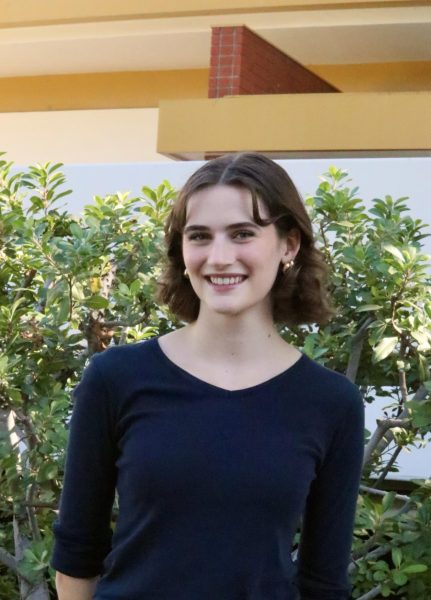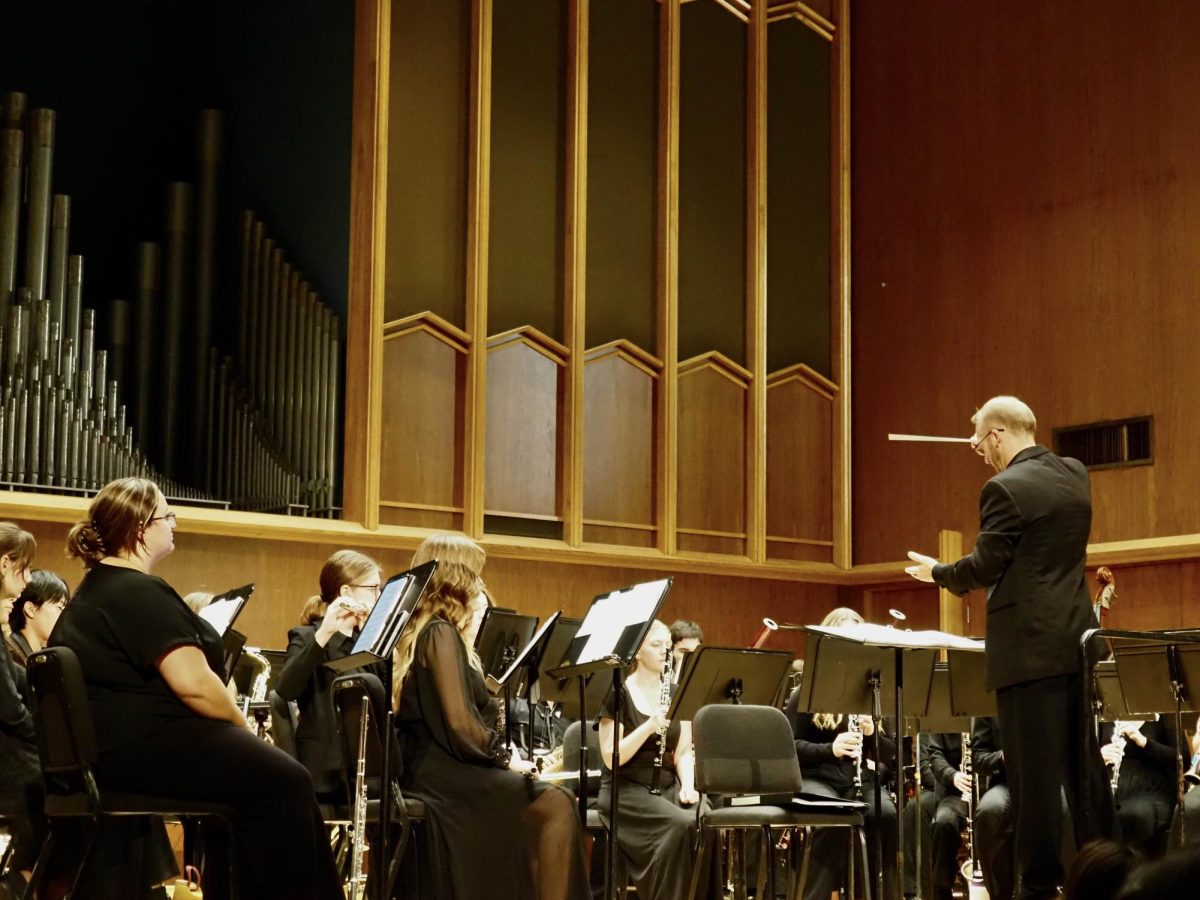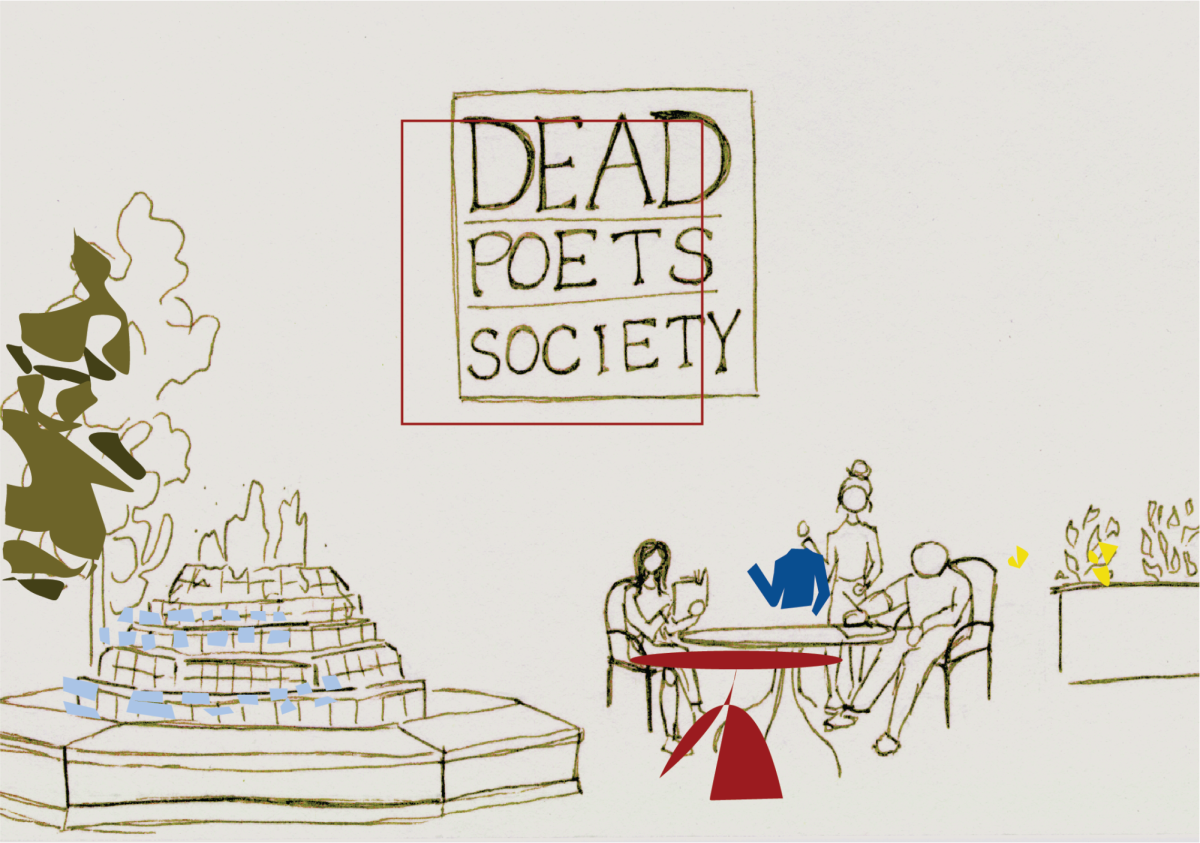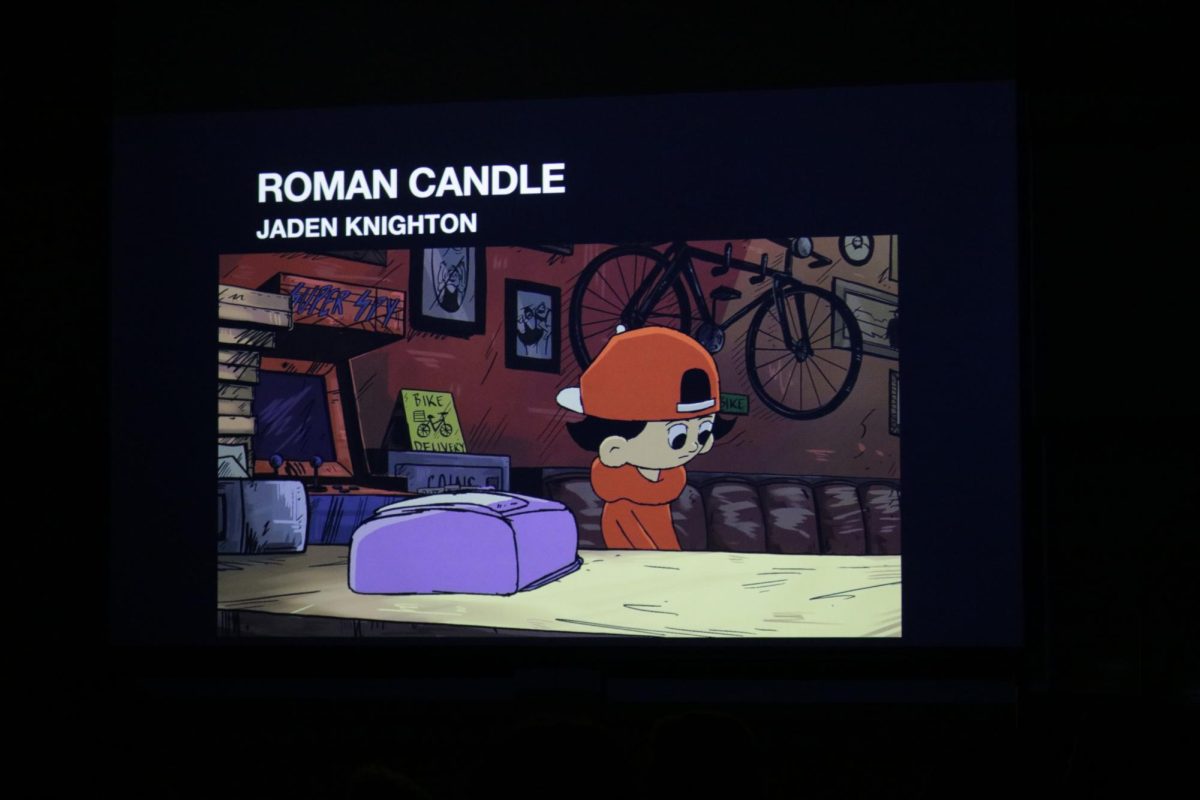Last week, Biola Theatre presented A Night of Student-Directed One-Act Plays in Mayers Auditorium. The two student-directed plays sought to challenge the audience with deep and troubling themes and content in order to provoke thoughts and a pursuit of truth.
PLOT SUMMARIES
The first play presented was “Gun and a Motel Bible,” which was directed by sophomore cinema and media arts major Makenzie Pappan. It follows the story of Peter Jameson, portrayed by senior theatre major Isaiah Lane, who is planning to shoot his wife’s lover after discovering she had committed adultery. As he waits for his target in a motel room, he is met by a talking motel Bible named Gideon, portrayed by junior musical theatre major Luke Bona. The two begin talking and spark a lighthearted and humorous conversation with one another. But it soon takes a more difficult turn as Gideon slowly realizes what Pete is here to do. This then begins an intense dialogue between the passionate yet naïve Gideon and the bitter, ex-Christian Pete. They talk about morality, the reason of faith, the reliability of the Bible, the anguish of loss and betrayal, and the question of God’s silence in a world of suffering. As the debate rages on in this small motel room, the clock slowly ticks as the time for Pete’s life-altering act draws near.
The second play presented was “No Exit,” which was directed by senior communications major Natalie Wilson. This play, which was written by existential philosopher Jean-Paul Sartre, is about three strangers who are locked in a small room in hell. Hell, at first, seems to look more like a well-furnished living room rather than a fiery torture chamber. The three strangers claim to have no idea why they are here. Journalist Joseph Garcin, portrayed by freshman cinema and media arts major Ashton Pulis, claims to have been executed for being a pacifist. Young socialite Estelle Rigault, portrayed by junior theatre major Kaylin Kenders, claims she has no clue why she’s in hell. However, the brooding Inèz Serrano, portrayed by theater major Charisse Ginta, accuses both of them of lying, sparking a downward spiral as every one of them reveals the deepest sins from their past life. A horrible mix of attraction, desperation, confession, insecurity and bitterness over long conversations cause all three to slowly realize a horrible truth. Hell is not demons and fire and torture, but “Hell is other people.”
WRESTLING WITH DARKNESS
Biola Theatre did not hold back when it came to these plays. The dark themes present in them, as well as the raw portrayals of struggling, depraved characters, made for a sobering, artistic display of humanity’s dark side. Or, as Christians would put it, a fallen humanity and sinful nature.
For example, “Gun and a Motel Bible” doesn’t try to resolve all the difficult, tense problems of the character Pete, who is disillusioned and bitter toward religion. Gideon, the personified Bible, is shockingly seen struggling to respond to Pete’s arguments against God and Gideon (the Bible) himself. And while there are times where Pete does seem to lack solid responses to Gideon’s counter-arguments, it’s uncertain if any of the conversation helps in the end as Pete storms out of the room with his gun.
This hanging ending, according to Lane, is what makes the play so special. “I feel like when you’re telling somebody about Jesus, it sometimes doesn’t work. I feel like a lot of times it doesn’t work,” he said. “And that this show shows that. It shows the negative outcome of pursuing somebody and trying to share the gospel with them.” There’s a reality check here: sometimes, people will reject what you want to share with them.
“No Exit” grapples less with faith, but talks about and displays tragic themes. One character openly admits to being an abusive husband, while another claims to have killed a baby that she bore as a result of an affair. Throughout the whole play, all three characters are trying to seduce one another, as well as fight to attract the person they want. In terms of worldview, Wilson points out that the play itself is from an existential philosopher trying to make a grim point that as humans, “we completely torture each other and we completely bring each other joy.” The view of hell in the play lacks anything concerning man’s sins against God, and is only there to posit a view of the human experience that is contrary to the Christian worldview.
It was for that exact reason that Wilson chose to direct this play. “I picked ‘No Exit’ because it was different from Biola,” she said. “I really believe that artists, especially theater artists, should always challenge the worldviews that they’re a part of and find truth in other worldviews. And this was the perfect show for that.”
The open portrayal of doubt, sinful behavior and contrary worldviews may cause some discomfort. However, in the show’s playbill, Biola Theatre noted that while they would never condone the behaviors related to humanity’s fallen condition, they would not present half-truths.
“Sometimes Christian artists and audiences expect a sanitized view of the human state, but does such an expectation not do a disservice to a full realization of the sacrifice Christ made in dying for our sins?” the statement said. “Just as one cannot draw a picture without utilizing shadow to portray a sense of depth, so too, we must sometimes encounter theatrical material that depicts the reality of human nature – if it is in service of a message that is redemptive, glorifies kingdom truths and reveals our need for a savior in a broken world.”
FURTHER DISCUSSION
The quotes within the article are from longer interviews with the actors and directors from both plays. If you want to hear more about the behind-the-scenes, the thought process of the actors and the directing choices, the Biola Backstage podcast will be uploading the full interviews in the near future. You can check the podcast out on the Torch web page.







